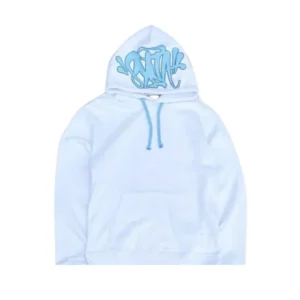Introduction
Comme des Garçons (CDG) is not just a brand; it’s a cultural phenomenon that has redefined the fashion landscape. Founded in 1969 by Rei Kawakubo, the brand has become synonymous with avant-garde fashion, pushing boundaries with its unconventional designs and challenging the norms of beauty and aesthetics. From its early days in Tokyo to becoming a global powerhouse in fashion capitals like Paris and New York, Comme des Garçons continues to captivate audiences with its innovative approach to design.
The Vision of Rei Kawakubo and Comme des Garçons
Rei Kawakubo’s vision for Comme des Garçons has always been rooted in a desire to challenge the status quo. Her approach to fashion is less about creating beautiful clothes and more about making a statement. Kawakubo often deconstructs traditional garments, playing with proportions, textures, and silhouettes in ways that defy conventional fashion norms. This avant-garde approach has made CDG a favorite among those who appreciate fashion as a form of art and self-expression.
Kawakubo’s influence extends beyond just design. She has cultivated a deeply enigmatic brand identity, often refusing to explain her collections or the meaning behind her designs. This mystery has only added to the allure of Comme des Garçons, making it a brand that is as much about intellectual exploration as it is about clothing.
Hoodies: A Subversive Take on a Classic Staple
Hoodies are a staple in modern wardrobes, but Comme des Garçons has taken this basic item and reimagined it in ways that are anything but ordinary. CDG hoodies often feature bold graphics, unusual silhouettes, and unexpected fabric choices, all of which reflect the brand’s commitment to subverting traditional fashion norms.
One of the most iconic elements of CDG’s hoodie designs is the use of the heart logo with eyes, created by Polish artist Filip Pagowski. This logo, part of the Comme des Garçons PLAY line, has become one of the most recognizable symbols in fashion. The heart logo adds a playful, yet slightly eerie, touch to the otherwise minimalist hoodie designs. These hoodies often come in neutral colors like black, grey, and white, with the heart logo providing a pop of color.
Material choice is another area where CDG hoodies stand out. While many hoodies are made from standard cotton or fleece, CDG often incorporates unique materials like neoprene, mesh, or even leather. These materials not only add a tactile dimension to the hoodie but also challenge the wearer’s expectations of what a hoodie should feel like.
The versatility of CDG hoodies is also worth noting. While they are undoubtedly statement pieces, they can be styled in various ways to suit different occasions. Pairing a CDG hoodie with jeans and sneakers creates a casual, streetwear-inspired look while layering it under a tailored coat adds an element of surprise to a more formal outfit. This adaptability is a testament to the brand’s ability to create garments that are both artful and wearable.
Shirts: Deconstruction and Reinterpretation
Comme des Garçons is known for its deconstructionist approach to fashion, and this is perhaps most evident in its shirt designs. CDG shirts often defy traditional shirt-making conventions, featuring asymmetrical cuts, unexpected fabric combinations, and unconventional silhouettes. These shirts are more than just garments; they are wearable art pieces that challenge the wearer to think differently about fashion.
One of the hallmarks of CDG shirts is the use of layering and mixed materials. It’s not uncommon to find a shirt that combines multiple fabrics in one design, such as cotton mixed with sheer organza or wool panels sewn onto a linen base. This patchwork approach not only adds visual interest but also plays with the concept of what a shirt can be. Instead of a single, cohesive piece, CDG shirts often feel like a collage of different ideas and textures, all coming together to create something entirely new.
The brand also frequently plays with proportions and shapes. For example, a CDG shirt might feature an exaggerated collar, oversized cuffs, or an unusually long hemline. These distortions of traditional shirt elements are a direct challenge to the conventions of tailoring and offer a fresh perspective on how a shirt can be worn. Some shirts may also feature unconventional closures, such as off-center buttons or hidden zippers, further adding to the element of surprise.
Prints and patterns are another area where CDG shirts shine. The brand often uses bold, graphic prints that range from abstract designs to literal interpretations, such as images of hands, faces, or even entire landscapes. These prints are often juxtaposed against more traditional elements, such as stripes or checks, creating a visual contrast that is both jarring and intriguing. The combination of prints and patterns in a single shirt is a signature CDG move, one that reflects the brand’s philosophy of embracing contradictions and breaking the rules of conventional design.
Jackets: Avant-Garde Outerwear with a Purpose
Jackets are a key component of the Comme des Garçons collection, embodying the brand’s commitment to avant-garde design and meticulous craftsmanship. Whether it’s a tailored blazer, a deconstructed trench coat, or a padded bomber jacket, each piece reflects Kawakubo’s vision of creating clothing that challenges conventional ideas about shape, structure, and functionality.
Comme des Garçons jackets often feature complex constructions that play with the traditional notions of tailoring. For example, a CDG blazer might have an intentionally unfinished hem, visible seams, or asymmetrical lapels. These details disrupt the clean lines typically associated with tailored jackets, offering a new interpretation of what a blazer can be. The deconstruction of these garments is not just for aesthetic purposes; it also encourages the wearer to question the norms of fashion and to think about the clothing in a new light.
Comme des Garçons also excels in creating hybrid garments that blur the lines between different types of outerwear. For example, a jacket might combine elements of a bomber and a trench coat, resulting in a piece that is both functional and innovative. These hybrid designs are a reflection of Kawakubo’s willingness to experiment and her desire to create clothing that is not easily categorized.
The color palette of CDG jackets is often subdued, with black, grey, and navy being the most common choices. However, the brand occasionally introduces more vibrant colors or bold patterns, adding an element of surprise to the collection. Even in these cases, the colors and patterns are used in a way that complements the overall design rather than overwhelming it. This careful consideration of color and pattern ensures that each jacket remains a cohesive piece, despite its avant-garde design.
The Influence and Legacy of Comme des Garçons
Comme des Garçons has had an immeasurable impact on the fashion industry. Rei Kawakubo’s fearless approach to design has inspired countless designers and has paved the way for a new generation of fashion creatives who are unafraid to challenge the status quo. Her influence can be seen not only in the work of avant-garde designers but also in the mainstream fashion industry, where the lines between art and fashion are becoming increasingly blurred.
The brand’s collaborations have also played a significant role in its global influence. Comme des Garçons has partnered with a wide range of brands, from Nike to Louis Vuitton, bringing its avant-garde sensibilities to a broader audience. These collaborations often result in highly coveted, limited-edition pieces.




